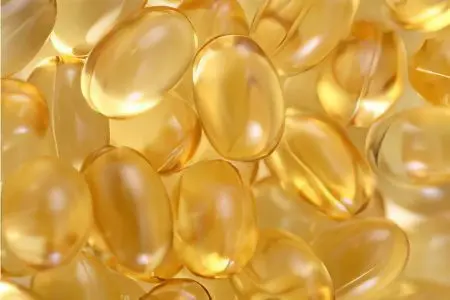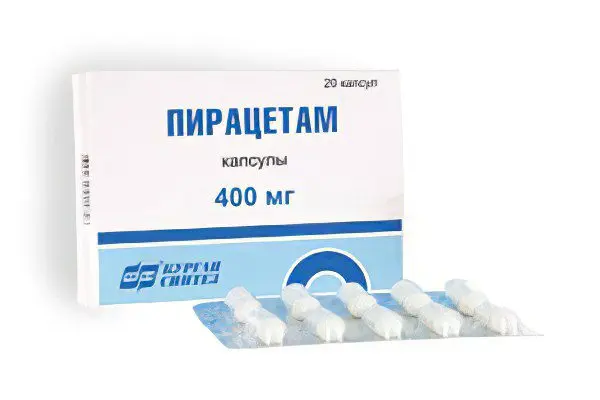Contents
With the pace of medical and technological progress, the day is probably not far off when anyone can “overclock” their brain like a computer with a single pill. But until magic pills are invented, it is worth paying attention to the means available now – nootropics. This group of substances includes all neurometabolic stimulants that have a pronounced positive effect on human brain functions. The main source of nootropics is not the chemical industry, but mother nature, and she has a truly huge arsenal.
Today we will present to your attention a hit parade of fifteen substances that improve memory and stimulate the brain. It is unlikely that with their help you will be able to become the second Einstein, but you will surely be able to increase your efficiency, concentration and resistance to stress, and at the same time improve your health and prolong youth. The article has specific recommendations for taking nootropic substances and extracts of medicinal plants.
But before you start reading, please consider a few important points:
Natural dietary supplements and plant extracts, for all their harmlessness, can have contraindications, cause allergic reactions and give side effects. Therefore, it is strongly not recommended to take them without consulting your doctor who knows your medical history and medical history;
The dosage of nootropics, the duration and alternation of treatment courses should also be set individually, based on the age of the person and the characteristics of his body. That is, if your doctor said that ginseng is useful, this does not mean that you need to eat it in handfuls for a whole year in a row;
The best is the enemy of the good, remember this, standing at the pharmacy counter with dozens of bright jars. You do not need to take several funds at the same time, hoping in this way to achieve a more pronounced effect. It is better to alternate nootropics and focus on your feelings in order to determine exactly the substance that helps stimulate brain activity and improve memory specifically for you;
Be sure to track your progress with special tests and exercises. This is the only way to draw conclusions about the effectiveness of the chosen nootropic and replace it with another drug, if required.
1 lecithin

The main organ of the nervous system – the brain – consists of a third of the phospholipid lecithin. Yes, the very one that we have been strongly associated with the yolks of chicken eggs since childhood. The peripheral nervous system, by the way, also consists of 17% lecithin. The components of this substance are present in varying amounts in the cells and tissues of the entire human body and are involved in the synthesis of hormones, enzymes and mediators. That is why the lack of lecithin has fatal consequences: the work of all organs and systems is disrupted.
In the presence of pantothenic acid (vitamin B5), lecithin is transformed into acetylcholine, the most important neurotransmitter, on which the speed of nervous reactions, the ability to concentrate, memorize and analyze information depend. In addition, lecithin provides a more complete absorption of all fat-soluble vitamins (A, E, D, K). It is the achievement of a healthy vitamin status that underlies neurodietology – the science of proper nutrition for the brain and nervous system as a whole. The intellectual abilities of a person, which are laid down in infancy, directly depend on how well the body is provided with vitamins.
During the first year of life, the baby receives huge doses of lecithin from breast milk. It is noteworthy that there is 100 times more lecithin in milk than in the entire circulatory system of a nursing mother. If it is impossible to breastfeed, it is necessary to select a milk formula for the child with the most optimal content of phospholipids. Whether the child’s body receives a sufficient amount of lecithin in the first years of life will depend on the speed of its speech and motor development, stress resistance, the ability to social adaptation and academic performance in a preschool institution and school.
An adult person, not only engaged in mental work or high-precision production, but also regularly exposed to stress and forced to concentrate for a long time (drivers, sellers), really needs lecithin. By enriching your diet with this phospholipid, you will feel less tired and will be able to prolong your youth and ability to work. Lecithin is found in large quantities in eggs, chicken and beef liver, fatty fish, seeds and nuts, as well as in all legumes, especially soy. It is from soy that most dietary supplements with lecithin are produced.
A child is recommended to receive 1-4 grams of lecithin per day, and an adult – 5-6 grams. To achieve a pronounced effect, drugs with lecithin are taken for at least three months, only for such a period it is possible to significantly improve memory and increase mental performance. Lecithin has no contraindications, moreover, this valuable phospholipid will help you not only stimulate the brain, but also support the body as a whole.
2 Caffeine + L-theanine

A cup of strong coffee is the first thing that comes to mind when you need to concentrate, drive away drowsiness and force yourself to learn a lesson, solve a problem, and do complex mental work. But scientists have long proven that caffeine in itself does not affect academic performance and productivity. He will not tell you the right decision and will not give you a good idea. All that coffee can do is cause a short-term excitation of the nervous system, thanks to which your brain will stay afloat a little longer. But the energy surge will very soon turn into a decline, and fatigue and drowsiness will appear much stronger than before taking caffeine.
Another thing is the combination of caffeine with the amino acid L-theanine found in green tea. This substance is able to bypass the blood-brain barrier and protect the brain from the aggressive stimulating effects of caffeine, while maintaining and prolonging the positive stimulating effect of the latter. L-theanine prevents caffeine from raising blood pressure and provoking a hypercompensation reaction, when a sharp decline follows an increase in brain activity.
Tests have shown that the best result can be achieved by taking 50 mg of caffeine and 100 mg of L-theanine within a few hours. This dosage is equivalent to two cups of green tea and one cup of coffee, and it will allow you to significantly increase concentration, improve the speed of logical thinking and visual information processing. There are complex dietary supplements based on caffeine and L-theanine, but only relatively healthy people who do not have diseases of the cardiovascular system can take them, as well as regularly indulge in caffeine-containing drinks.
3 Dark chocolate (flavonols)
Well, when it comes to raising the mood, chocolate immediately comes to mind. It not only has a pleasant taste, but also contains flavonols – substances that stimulate the production of the hormone of joy, endorphin. In addition, flavonols increase brain perfusion and accelerate the transmission of nerve impulses, which allows us to stay alert and alert longer. Most of the flavonols in the type of chocolate, which has more cocoa, that is, in black, or bitter, as it is also called.
Milk and white tiles with a lot of fillers and aromatic additives negate all the benefits of chocolate. If you want to achieve a healing effect from your favorite delicacy, make it a rule to eat every day 35-200 g of good dark chocolate with a cocoa content of more than 80%. Stretch the pleasure by breaking off a few pieces, then you will always be in a good mood and energetic state.
4 Piracetam + choline

If you ask neurologists which substance best stimulates the brain and improves memory, they will first of all name Piracetam, also known as Lucetam and Nootropil. This drug is the flagship of the nootropic squadron; it is prescribed to patients with mental retardation, senile dementia, Alzheimer’s disease and even schizophrenia. But absolutely healthy people who simply want to improve memory and increase intellectual tone can safely recommend Piracetam.
The principle of action of this drug on the body is to stimulate the synthesis of acetylcholine and expand its functions. Piracetam allows a person to use the resources of his main neurotransmitter in full. To enhance this effect, it is recommended to combine the intake of Piracetam with the intake of choline. This will simultaneously allow you to insure yourself against headaches, which sometimes occur during long-term treatment with Piracetam. Usually prescribed 300 mg of both substances three times a day, but we emphasize again that the uncontrolled use of nootropics without the knowledge of a doctor is not a good idea.
5 Omega-3 fatty acids
The most fashionable trend in modern neurodietology is the intake of omega-3 fatty acids, or simply the enrichment of the diet with fatty ocean fish, legumes, nuts and seeds. Omega-3s are, in the literal sense, food for the brain: eicosapentaenoic (EPA) and docosahexaenoic (DHA) acids provide cell renewal and the necessary speed of reactions between organelles. In practice, this means that with the help of ordinary fish oil, a person can improve memory, protect against daily stresses and ensure mental clarity until old age.
Omega-3 fatty acids have a positive effect on the state of the brain and nervous system, not only for sick people, for example, with Alzheimer’s disease, but also for completely healthy people. Studies have been repeatedly conducted with the participation of control groups, consisting of people of different sex and age, and the results confirmed the effectiveness of omega-3 in all areas: memory, stress resistance, concentration, speed of nervous reactions. On the day of an adult, 1-2 capsules of fish oil (1200-2400 mg of omega-3) are enough to significantly improve brain function in a few months.
[Video] Dr. Berg is the best nutrient for the brain:
[Video] Dr. Berg – 4 minerals that affect the level of IQ. The main vitamins for the brain:









